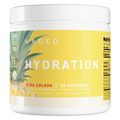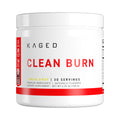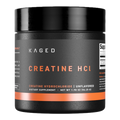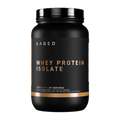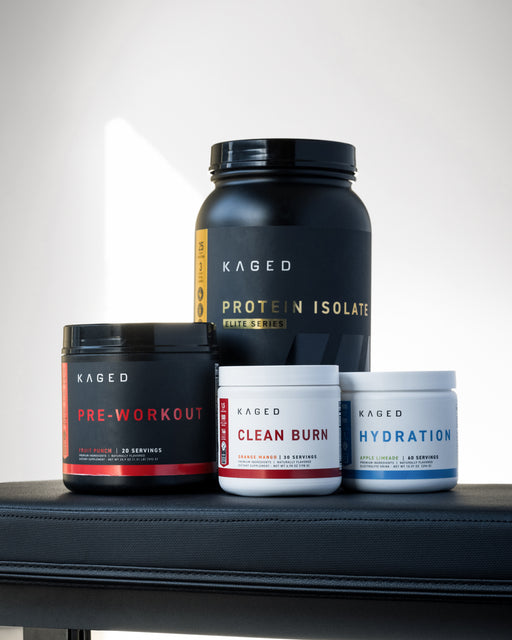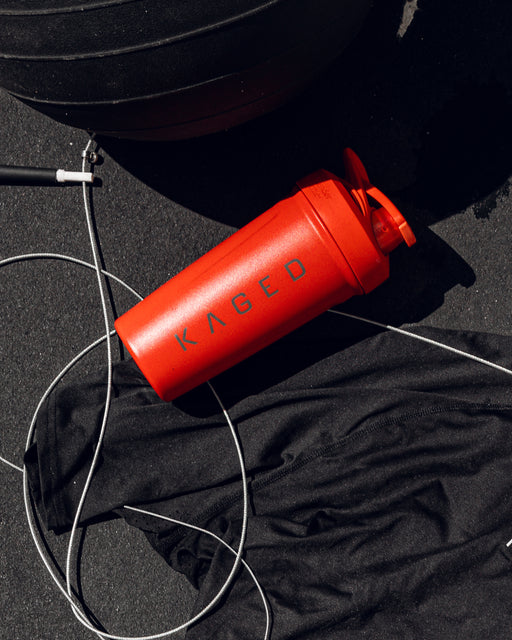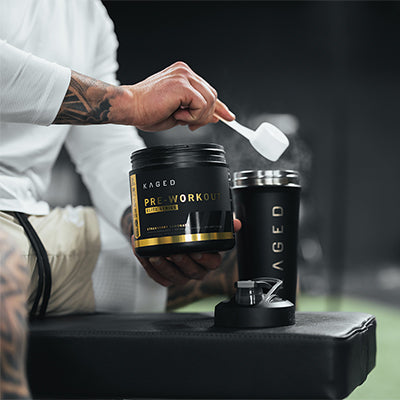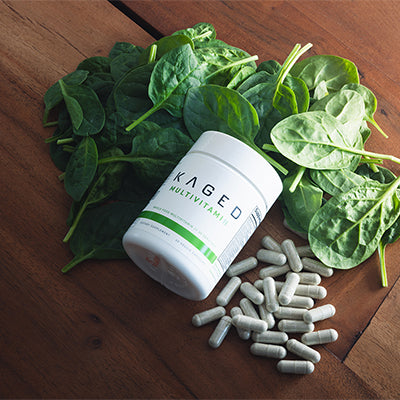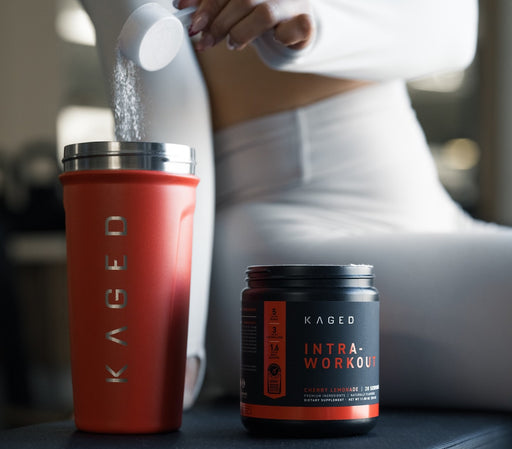For as long as pre-workouts have been around, there’s been a debate: Are they actually good for you, or are you just drinking an energy bomb before the gym?
It’s a fair question. Between the caffeine kick, the tingling from beta-alanine, and the neon-colored powders on the market, it’s no wonder people ask if pre-workout is bad for you.
Pre-workout supplements are not inherently bad for you. When you use a well-formulated, third-party tested product at the correct dose, pre-workouts can safely boost your focus, energy, and performance.
Let’s break it down.
Why People Think Pre-Workout Might Be Bad for You
Most concerns about pre-workout come down to three things: caffeine, side effects, and untested formulas.
1. Caffeine
Caffeine is a key ingredient in most pre-workouts. It’s a stimulant that increases alertness and endurance.
But like anything, too much can be a problem. Overdoing caffeine can cause jitters, trouble sleeping, or an elevated heart rate.
That doesn’t mean caffeine is bad for you. It means you need to know the right dose for you.
Most people tolerate up to 400 mg of caffeine per day safely, according to the FDA. Now, if you’re caffeine sensitive, then yes, taking a high-stimulant pre-workout like Kaged Pre-Workout Elite can lead to a racing heart, jitters, sweats, and an upset stomach.
It’s not a pre-workout for beginners.
On the other hand, if you're used to drinking caffeine daily, or if you tolerate caffeine well, then it likely won't cause those issues.
That’s why we provide options with all caffeine levels and choose organic caffeine over synthetic.
If you’re new to pre-workout, you can see our recs for you in our blog post on pre-workout for beginners.
2. Common Side Effects (and Why They’re Harmless)
Some people experience:
Tingling or itching (from beta-alanine)
This tingling sensation, called paresthesia, happens as beta-alanine interacts with nerve receptors under your skin. It’s completely harmless and usually fades within 30 minutes once your body gets used to it.
Temporary flushing (from niacin)
Niacin can cause a warm, red flush on your skin as it increases blood flow and widens your capillaries. It’s temporary and not a sign of anything harmful—just your body’s natural response to higher niacin levels.
Tightness or “pump” (from nitric oxide boosters like citrulline)
That tight or swollen feeling in your muscles comes from increased blood flow and oxygen delivery during your workout. It’s a sign your nitric oxide levels are rising, enhancing nutrient delivery and performance, not causing harm.
These are normal physiological responses, not signs of danger. If any of these bother you, start with a half scoop to assess your tolerance.
3. Untested or Low-Quality Products
This is where pre-workout can actually go wrong. Some brands:
- Hide ingredients behind “proprietary blends”
- Use unverified stimulants
- Skip third-party testing
The bottom line for all of these is that you deserve to know exactly what you’re putting in your body.
For over a decade at Kaged, we’ve been helping to lift the whole industry up with us and demand that every batch of every product is third-party certified.
At Kaged, every pre-workout is Informed Sport Certified.
That means each batch is tested for banned substances and label accuracy, so what you see on the label is what’s in the scoop.
(The Right) Pre-Workout Does a Lot For You
At its core, pre-workout is about that extra bit of drive when you’re tired after work, the energy that gets you moving on days you don’t feel like it, the focus that helps you tune everything else out once you’re under the bar, and the extra rep you’ll achieve thanks to its performance ingredients.
When taken correctly, pre-workout can help you train harder and longer, stay laser-focused through your toughest sets, and push through the moments when your body says “enough.”

You’ll often feel a sharper mind-muscle connection, smoother endurance, and that sense of momentum that makes every rep count.
So how does it actually work? It’s not magic. It’s science.
Pre-workouts combine ingredients that have been extensively studied and proven to improve performance. Some of these popular ingredients include:
-
Caffeine increases energy, endurance, and focus by stimulating your central nervous system and helping your body use fat as fuel.
-
L-Citrulline boosts nitric oxide production, which improves blood flow so you feel stronger pumps and better nutrient delivery to your muscles.
-
Beta-Alanine helps buffer lactic acid buildup, allowing you to grind out those extra reps when fatigue starts to set in.
-
Creatine supports power output, helping your muscles perform at their peak for explosive lifts and sprints.
None of these ingredients is “bad for you.”
In fact, they’re some of the most researched ergogenic aids in sports nutrition, with decades of studies showing their effectiveness and safety when used in proper doses.
A high-quality pre-workout, like those from Kaged, balances these ingredients at research-backed doses, so you get results you can feel without overloading your body.
When you approach pre-workout with that mindset, as a tool to enhance consistency, energy, and focus, it becomes less about “is it bad for me?” and more about how much better can I perform when I’m at my best?
The Opportunity Cost: What You Might Lose Without It
Do you need a pre-workout? Of course not.
But if pre-workout helps you get to the gym more often, push harder, or stay consistent—then it’s doing something good for you.
Regular exercise improves:
- Cardiovascular health
- Strength and muscle mass
- Mental health and confidence
So if pre-workout gives you the motivation to train, the net effect is positive.
In other words, the biggest health risk might be skipping your workout.
Pre-Workout Isn’t Bad for You, Bad Pre-Workouts Are
When someone asks, “Is pre-workout bad for you?” what they’re really asking is, “Is my pre-workout clean, safe, and effective?”
With Kaged, the answer is yes.
Our formulas are built on research, tested for purity, and made with transparent labeling, so you can train harder with confidence.
How to Use Pre-Workout Safely
To maximize results and minimize side effects:
-
Start with a half scoop if you’re new to pre-workouts.
- Take it 30–45 minutes before training.
-
Stay hydrated throughout your workout.
-
Don’t combine with other high-caffeine products.
-
Cycle off occasionally if desired to reset your tolerance.
FAQ: What People Also Ask
Is pre-workout bad for your heart?
Not when used correctly. The caffeine in pre-workout increases heart rate temporarily, similar to exercise itself. For healthy adults, that’s not dangerous. If you have heart issues or are sensitive to stimulants, consult your healthcare provider first.
Is it bad to take pre-workout every day?
Not necessarily. You can take pre-workout daily as long as you stay within safe caffeine limits and don’t combine it with other stimulants. Many athletes use it before every training session without issue.
In fact, many ingredients like Beta-alanine and creatine are more effective when taken regularly.
Is pre-workout bad for your kidneys or liver?
No studies show that moderate, tested pre-workout use harms the kidneys or liver in healthy adults.
Can beginners take pre-workout?
Yes, but start slow. Try a half scoop first to assess your tolerance to caffeine and beta-alanine. Focus on hydration, nutrition, and recovery too.
